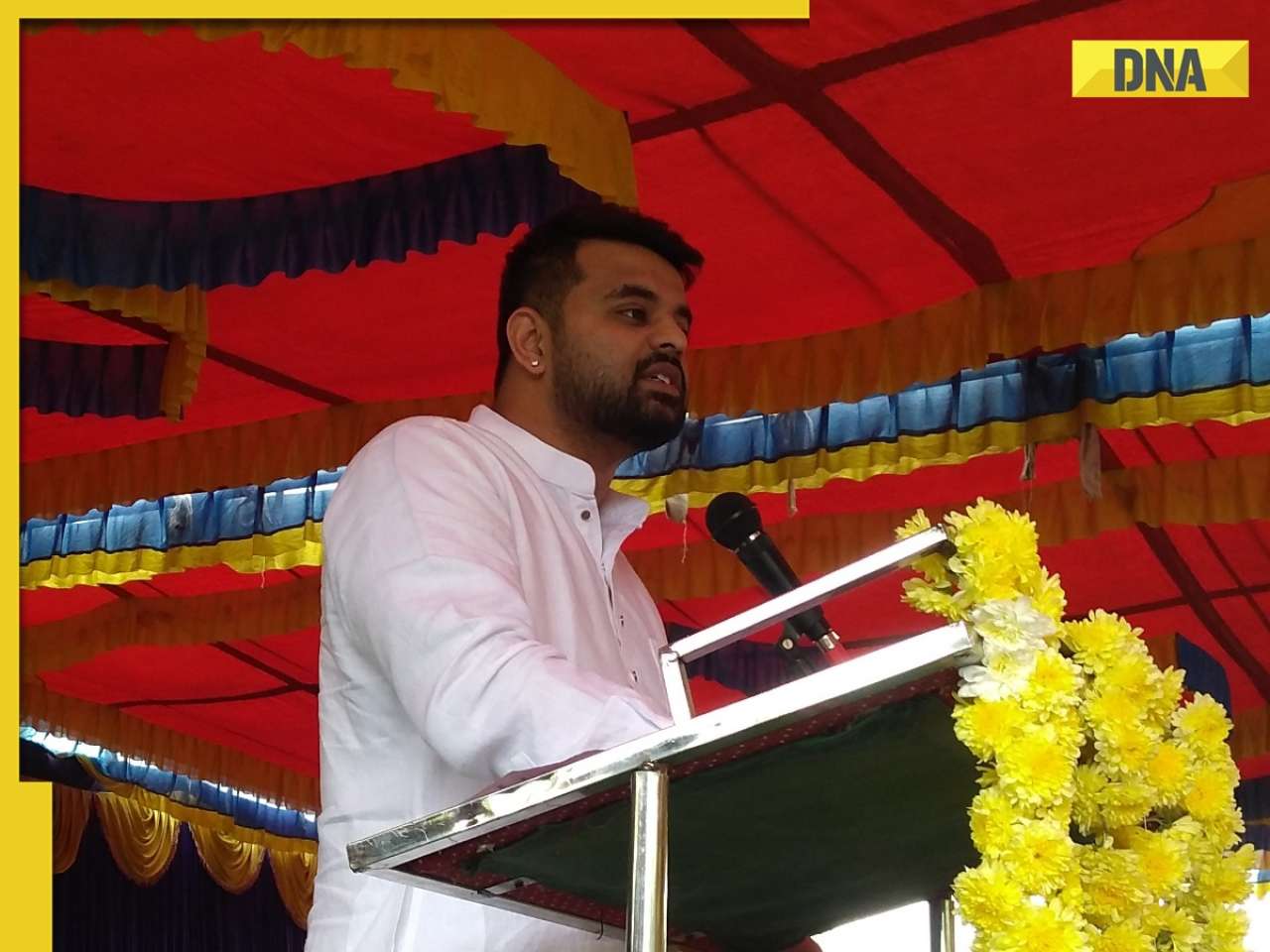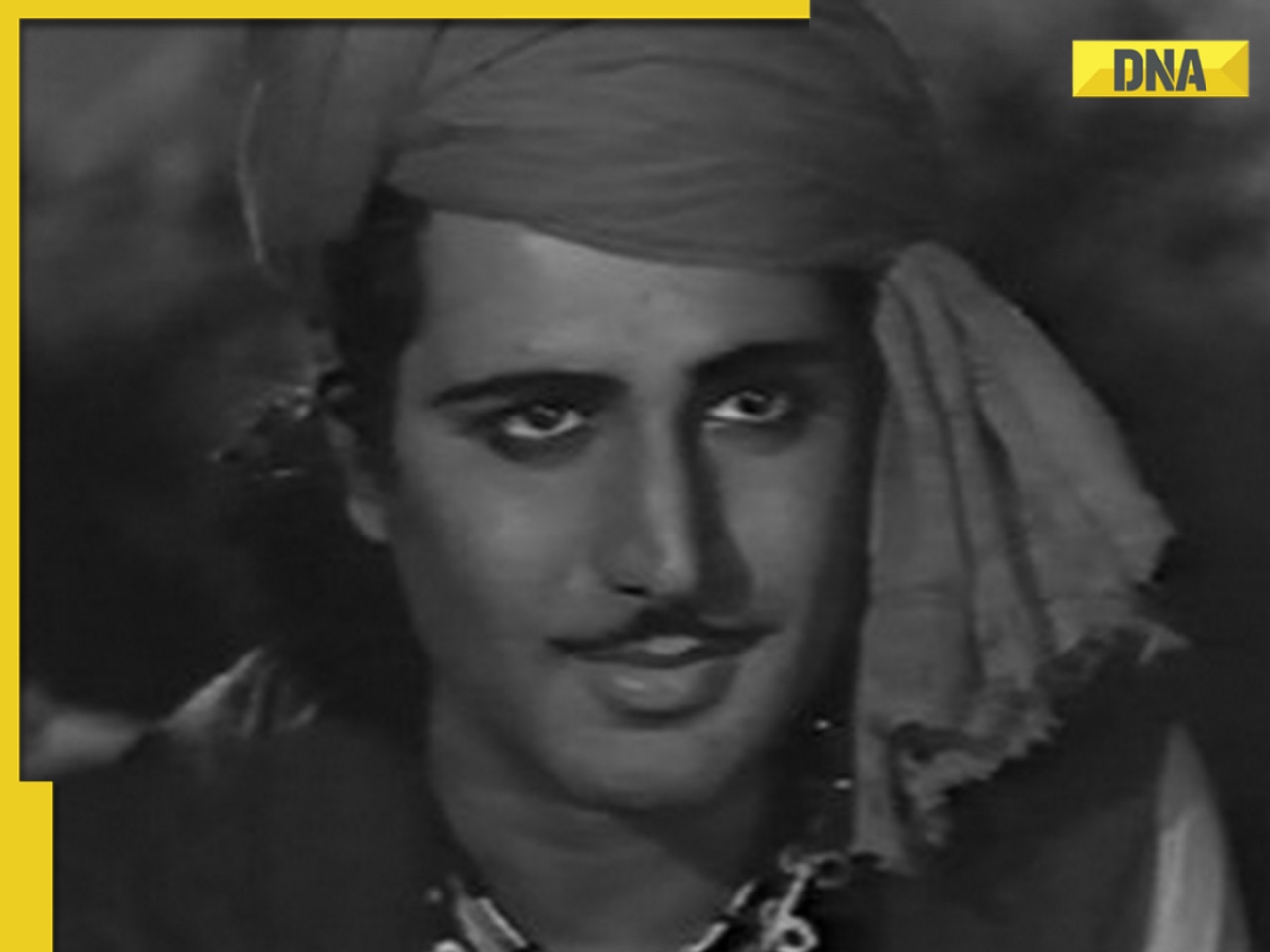Captain GR Gopinath’s book Simply Fly charts his entrepreneurial journey in meticulous detail and tells a cracking good story of what ideas, grit and unfailing optimism can achieve.
Sitting on the sunny poolside deck of Captain GR Gopinath’s bungalow in the heart of the city — lovingly refurbished after he bought it in a hopelessly run down condition from the previous owners — it is a little tough to imagine him once living for months in a tent in the middle of his farm or using a bullock cart to ferry his would-be bride and her family to inspect his living arrangements.
That’s exactly the reason why Captain Gopinath equates his story with that of a New India — an India where a poor school teacher’s son from a village in Karnataka can launch one of the most capital-intensive businesses and, through it, change everything about a sector once thought of as elite and exclusive.
While Gopinath’s textbook rags-to-riches story has often been quoted as an example of what a compulsive Indian entrepreneur with more ideas than he knows what to do with can achieve, his book 'Simply Fly: A Deccan Odyssey' helps the reader fill in the outlines with colour.
“Too many people suggested that I write this book for me to think about it seriously,” says Gopinath while clarifying that while he wouldn’t strictly call the book an autobiography, it isn’t just the story of his launching Air Deccan, as seems to be the general assumption. “Nor is it a how-to book on entrepreneurial success,” he says. Instead, the book provides detailed glimpses into Gopinath’s early life, his years in the army, the decade he spent as a farmer and his subsequent foray into aviation. There are few literary flourishes, yet it is obvious that when Gopinath gets down to telling a story, he tells a cracking good one with characteristic single-mindedness.
That’s also the kind of thoroughness needed to get this book out. When he started work on it about a year and a half ago, Gopinath was in the middle of launching a new company (Deccan 360, a logistics solutions company which he heads as chairman and MD). Subsequently, there was also a much-talked about election campaign. Yet, he managed to put away three to four hours every day for writing. “When it finally became too much to handle, I took to dictating large parts of the book into a recorder, later painstakingly transcribed by my colleague Pratyasha Singh,” says Gopinath. That done, his friend MK Shankar helped him edit it and bring it down to the desired number of pages during four-hour sessions every morning over a six-month period.
Ask him how he did it and pat comes the reply: “Someone once said that it is the busy man who has the time to spare.”
Writing the book, he says, has been cathartic in many ways. In a disarmingly honest confession in his introduction to the book, Gopinath says he has often been “arrogant, dogmatic, argumentative, delinquent…selfish (and) short-tempered”.
“Writing a book like this makes you think about things you did not stop to look at along the way because you were too busy,” says Gopinath. “It has helped me admit the mistakes I made.”
The book provides insights not just into Gopinath the successful entrepreneur but also Gopinath the activist, conservationist and the sometime philosopher. While his activism, including his two forays into politics, is well-recorded, it is perhaps less well-known that his was the first few initiatives into organic farming in the state. A firm believer in ‘back to nature’, Gopinath practiced organic sericulture or silkworm-rearing on his farm in the 1990s, and was awarded the Rolex Award for Enterprise in 1996. The book also lets loose the romantic nature-lover in the seemingly business-hardened man: references to the romance of rivers and the monsoons abound in the narrative.
It is obvious that in spite of the numerous hurdles he has faced — created by the government, by competitors and by negative Indian attitudes — Gopinath is an optimist. It is the Tagore-loving philosopher in him that makes him rebel against resentment and cynicism and say: “There’s so much beauty in nature; in art, music, books. If you learn to appreciate that, you can rise above
resentment.”
It is that, and an abiding faith in India as a land of possibilities, that makes him tick.
![submenu-img]() Meet India's highest paid director, charges 30 times more than his stars; not Hirani, Rohit Shetty, Atlee, Karan Johar
Meet India's highest paid director, charges 30 times more than his stars; not Hirani, Rohit Shetty, Atlee, Karan Johar![submenu-img]() Indian government issues warning for Google users, sensitive information can be leaked if…
Indian government issues warning for Google users, sensitive information can be leaked if…![submenu-img]() Prajwal Revanna Sex Scandal Case: Several women left home amid fear after clips surfaced, claims report
Prajwal Revanna Sex Scandal Case: Several women left home amid fear after clips surfaced, claims report![submenu-img]() Meet man who studied at IIT, IIM, started his own company, now serving 20-year jail term for…
Meet man who studied at IIT, IIM, started his own company, now serving 20-year jail term for…![submenu-img]() Gautam Adani’s project likely to get Rs 170000000000 push from SBI, making India’s largest…
Gautam Adani’s project likely to get Rs 170000000000 push from SBI, making India’s largest…![submenu-img]() DNA Verified: Is CAA an anti-Muslim law? Centre terms news report as 'misleading'
DNA Verified: Is CAA an anti-Muslim law? Centre terms news report as 'misleading'![submenu-img]() DNA Verified: Lok Sabha Elections 2024 to be held on April 19? Know truth behind viral message
DNA Verified: Lok Sabha Elections 2024 to be held on April 19? Know truth behind viral message![submenu-img]() DNA Verified: Modi govt giving students free laptops under 'One Student One Laptop' scheme? Know truth here
DNA Verified: Modi govt giving students free laptops under 'One Student One Laptop' scheme? Know truth here![submenu-img]() DNA Verified: Shah Rukh Khan denies reports of his role in release of India's naval officers from Qatar
DNA Verified: Shah Rukh Khan denies reports of his role in release of India's naval officers from Qatar![submenu-img]() DNA Verified: Is govt providing Rs 1.6 lakh benefit to girls under PM Ladli Laxmi Yojana? Know truth
DNA Verified: Is govt providing Rs 1.6 lakh benefit to girls under PM Ladli Laxmi Yojana? Know truth![submenu-img]() Jr NTR-Lakshmi Pranathi's 13th wedding anniversary: Here's how strangers became soulmates
Jr NTR-Lakshmi Pranathi's 13th wedding anniversary: Here's how strangers became soulmates![submenu-img]() Streaming This Week: Heeramandi, Shaitaan, Manjummel Boys, latest OTT releases to binge-watch
Streaming This Week: Heeramandi, Shaitaan, Manjummel Boys, latest OTT releases to binge-watch![submenu-img]() Remember Ayesha Kapur? Michelle from Black, here's how actress, nutrition coach, entrepreneur looks after 19 years
Remember Ayesha Kapur? Michelle from Black, here's how actress, nutrition coach, entrepreneur looks after 19 years![submenu-img]() Remember Heyy Babyy's cute 'Angel' Juanna Sanghvi? 20 year-old looks unrecognisable now, fans say 'her comeback will...'
Remember Heyy Babyy's cute 'Angel' Juanna Sanghvi? 20 year-old looks unrecognisable now, fans say 'her comeback will...'![submenu-img]() In pics: Arti Singh stuns in red lehenga as she ties the knot with beau Dipak Chauhan in dreamy wedding
In pics: Arti Singh stuns in red lehenga as she ties the knot with beau Dipak Chauhan in dreamy wedding![submenu-img]() DNA Explainer: Why Harvey Weinstein's rape conviction was overturned, will beleaguered Hollywood mogul get out of jail?
DNA Explainer: Why Harvey Weinstein's rape conviction was overturned, will beleaguered Hollywood mogul get out of jail?![submenu-img]() What is inheritance tax?
What is inheritance tax?![submenu-img]() DNA Explainer: What is cloud seeding which is blamed for wreaking havoc in Dubai?
DNA Explainer: What is cloud seeding which is blamed for wreaking havoc in Dubai?![submenu-img]() DNA Explainer: What is Israel's Arrow-3 defence system used to intercept Iran's missile attack?
DNA Explainer: What is Israel's Arrow-3 defence system used to intercept Iran's missile attack?![submenu-img]() DNA Explainer: How Iranian projectiles failed to breach iron-clad Israeli air defence
DNA Explainer: How Iranian projectiles failed to breach iron-clad Israeli air defence![submenu-img]() Meet India's highest paid director, charges 30 times more than his stars; not Hirani, Rohit Shetty, Atlee, Karan Johar
Meet India's highest paid director, charges 30 times more than his stars; not Hirani, Rohit Shetty, Atlee, Karan Johar![submenu-img]() This superstar worked as clerk, was banned from wearing black, received death threats; later became India's most...
This superstar worked as clerk, was banned from wearing black, received death threats; later became India's most...![submenu-img]() Karan Johar slams comic for mocking him, bashes reality show for 'disrespecting' him: 'When your own industry...'
Karan Johar slams comic for mocking him, bashes reality show for 'disrespecting' him: 'When your own industry...'![submenu-img]() Kapoor family's forgotten hero, highest paid actor, gave more hits than Raj Kapoor, Ranbir, never called star because...
Kapoor family's forgotten hero, highest paid actor, gave more hits than Raj Kapoor, Ranbir, never called star because...![submenu-img]() Meet actress who lost stardom after getting pregnant at 15, husband cheated on her, she sold candles for living, now...
Meet actress who lost stardom after getting pregnant at 15, husband cheated on her, she sold candles for living, now...![submenu-img]() IPL 2024: Kolkata Knight Riders take top spot after 98 runs win over Lucknow Super Giants
IPL 2024: Kolkata Knight Riders take top spot after 98 runs win over Lucknow Super Giants![submenu-img]() ICC Women’s T20 World Cup 2024 schedule announced; India to face Pakistan on....
ICC Women’s T20 World Cup 2024 schedule announced; India to face Pakistan on....![submenu-img]() IPL 2024: Bowlers dominate as CSK beat PBKS by 28 runs
IPL 2024: Bowlers dominate as CSK beat PBKS by 28 runs![submenu-img]() IPL 2024: Big blow to CSK as star pacer returns home due to...
IPL 2024: Big blow to CSK as star pacer returns home due to...![submenu-img]() SRH vs MI IPL 2024: Predicted playing XI, live streaming details, weather and pitch report
SRH vs MI IPL 2024: Predicted playing XI, live streaming details, weather and pitch report![submenu-img]() Job applicant offers to pay Rs 40000 to Bengaluru startup founder, here's what happened next
Job applicant offers to pay Rs 40000 to Bengaluru startup founder, here's what happened next![submenu-img]() Viral video: Family fearlessly conducts puja with live black cobra, internet reacts
Viral video: Family fearlessly conducts puja with live black cobra, internet reacts![submenu-img]() Woman demands Rs 50 lakh after receiving chicken instead of paneer
Woman demands Rs 50 lakh after receiving chicken instead of paneer![submenu-img]() Who is Manahel al-Otaibi, Saudi women's rights activist jailed for 11 years over clothing choices?
Who is Manahel al-Otaibi, Saudi women's rights activist jailed for 11 years over clothing choices?![submenu-img]() In candid rapid fire, Rahul Gandhi reveals why white T-shirts are his signature attire, watch
In candid rapid fire, Rahul Gandhi reveals why white T-shirts are his signature attire, watch


















































)
)
)
)
)
)